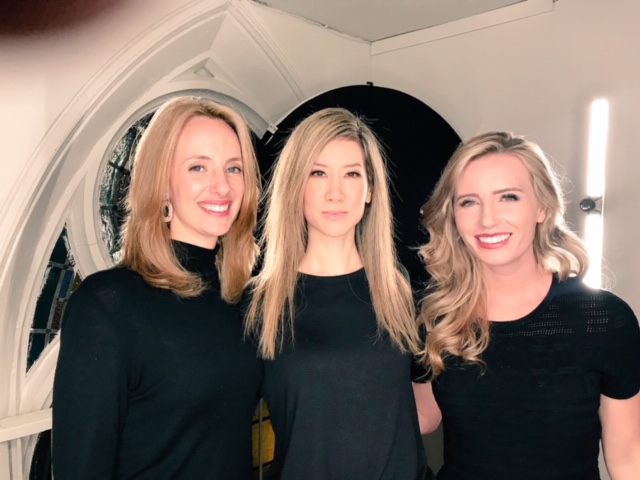
I approach Berkeley Church, a beautiful gothic revival church-turned-event-space in downtown Toronto, on a Sunday evening that is unusually frigid—even for the Great White North.
I am here for “Q Social,” an event put on by an online magazine called Quillette, which has—with nearly one million unique monthly visitors—taken the internet by storm. In its young, three-year life, Quillette has become the outlet for “conservatives that are sick of conservatives, and liberals who are sick of the left,” as one speaker put it that evening.
Tonight’s event gathers the glitterati of the Intellectual Dark Web (IDW), an eclectic cohort of academics and public intellectuals battling against the tyranny of political correctness, and fighting for “Enlightenment values,” such as freedom of expression, toleration, and evidence-based inquiry.
The IDW’s notable members run the gamut in terms of field and background—from scientists such as Steven Pinker and Jordan Peterson, who contribute to Quillette, to public intellectuals, talk show hosts, and policy wonks such as also Sam Harris, Joe Rogan, and Christina Hoff Summers—with the latter speaking to the crowd that evening (David Frum was also in attendance).
Quillette’s success stems from its willingness to publish and discuss “dangerous” ideas that run counter to mainstream narratives about race, gender, and sex. That Quillette is mostly crowd funded shows that it is meeting a previously unvoiced demand for alternative voices on many controversial issues.
The magazine broke into the public conscience with an essay defending the “Google memo,” which claimed that the existence of fewer women in STEM occupations was scientifically unremarkable and normatively no big deal. Quillette soon followed that up with four expert responses, including sex-scientists Debra So.
In the wake of a recent hoax—three academics submitted articles on ludicrous-sounding topics related to “grievance studies,” and some were accepted by respected academic journals—Quillette ran responses by academics who argued that the “fashionable nonsense” that is our post-modern, politically correct culture is ruining academe. (Some of the hoax articles that were accepted ranged from the absurd to the outrageous: from “rape culture” in dog parks, to an essay on feminism and intersectionality that included extended, edited passages from Mein Kampf.)
Quillette’s founder, Claire Lehman, is based in Sydney, Australia, and started the outlet after quitting a graduate program in psychology, disillusioned by the suppression of free inquiry in academe. “I noted a gap for data-driven, scientifically rigorous writing. I sought to remedy that… [Tonight shows] the flame is burning bright as we shepherd universal values into next generation,” she shared with the audience of over three hundred and fifty.
Quillette’s accomplishments are indicative of a broader trend in news media. Readers across the political spectrum are dissatisfied with the status quo and hungry for new voices and new ideas. Current Affairs—founded by Nathan Robinson, a graduate of Yale Law School currently pursuing his PhD at Harvard—is the progressive, social democratic analogue to Quillette.
Both Claire and Nathan are anti-institutional, clear thinking writers who offer their readers a interesting perspectives and a new vision for a better future. Like Quillette, Current Affairs is a high-quality, crowd-funded publication that started around three years ago with a slew of excellent writers—and is also flourishing (it’s worth noting that Current Affairs has an attractive print edition, while Quillette is solely online). Both represent a sort of creative destruction: as traditional publications like The Weekly Standard and The Nation shutter and falter, new outlets thrive.
In his 1755 dictionary, Samuel Johnson (referring to his mercurial would-be patron Lord Chesterfield) defined “patron” as “a wretch who supports with insolence, and is paid with flattery.” Johnson would be pleased with the more democratic, crowed-funded platforms that support writers today, releasing them from the whim of aristocratic patrons, and empowering them to maintain creative freedom as Quillette, Current Affairs, and others now enjoy. This development—art being no longer constrained by the caprice a privileged few—is an unalloyed good: it yields higher quality materiel for readers, more flexibility for writers, and is better for the future of free inquiry.
“Quillette is about people coming together and celebrating values that we hold deep in our heart: freedom, truth, humanity, toleration,” Lehman affirmed Sunday.
These values should not be controversial, yet they are. Thankfully, people across the world are putting their money where their dissatisfaction is in supporting Quillette and other outlets like it—including Aero, Unheard, The Stranger, The Post Millennial, and more. This “commodified dissent” means that those with the courage to articulate truth and principle with verve and clarity will continue to be heard in a moment where our society is politically and morally confused.
Alexandra Hudson, a former civil servant and Rotary Scholar, is a writer in Indianapolis currently working on a book on civility. Follow her on Twitter @LexiOHudson.